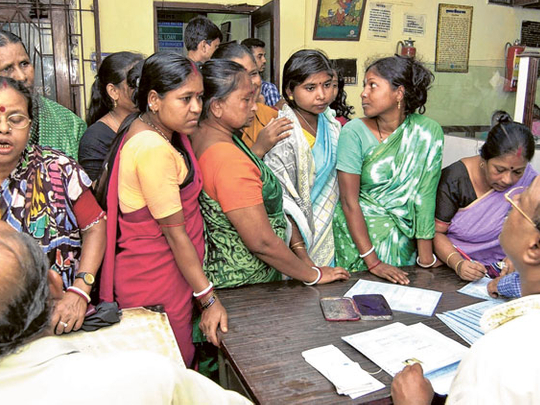
New Delhi: Twenty-year-old Noor was just 10 when she was sold off to a brothel owner and forced into the sex trade in West Bengal. She was rescued by activists a decade later and went on to become a vociferous community mobiliser. She believes prostitution should not be legalised.
"Prostitution is a vicious world. If a woman gets trapped, it sucks the life out of her. Only traffickers and pimps profit from it. Legalising prostitution will not empower women," Noor told IANS when she was here for a conference.
She said when a girl first enters the brothel, she is called a ‘chukri' or a trainee prostitute, offered a roof and two meals a day but her earnings are kept with the brothel owner.
Even if she is given the permission to go after a year or so, she is not given the money. So she returns.
As she ages and her clients wear down, she becomes an ‘adhya', meaning half. She is given half her earnings and has to pay for her bed and food staying until a miserable end.
Fatima Nat Dhuniya, another survivor of the sex trade, said instead of legalising prostitution, what is needed is a law amendment so clients and not the victims are held accountable.
"All organisations and individuals who say that prostitution should be legalised have not lived our lives. If you really want to help us, change the law so that next time the policeman does not harass the woman and punishes the client instead," Dhuniya told IANS.
"If there is no customer, the shop will close," she added.
Exploited and beaten
Dhuniya said she was married off at the age of nine. She kept going home to play with her friends, but she was always sent back. "I found it strange that my mother-in-law used to keep five girls in the house who served clients. I was exploited and beaten up by my husband," she said.
"Then I met a woman from an NGO who said it was really on me if I wanted to fight my way out of the mess. I started speaking to the girls and found that they were bought for a price and had to serve clients. But the money remained with my mother-in-law," she added.
She told her parents, who had no idea about the situation, and left the house. Later she helped the girls escape.
Today she works as a community mobiliser who helps the daughters of sex workers study so they are not forced to go the same way.
According to Sheila Jeffreys, feminist scholar and political activist from Australia where prostitution is legalised, it has not helped combat illegal sex trade.
"Legalisation of prostitution in Australia has not helped in combating the illegal industry, nor has it helped in overall betterment of women," said Jeffreys, who has authored the book "The Industrial Vagina: The Political Economy of the Global Sex Trade".
"Eighty per cent of the brothels in a state for instance are illegal and organised crime thrives in these illegal brothels," she added.
Suggesting instead to make a law or amend the law that criminalises the client and not the victim, Ruchira Gupta of Apne Aap, an NGO that works for the upliftment of women who have been victims of sex trafficking, said: "Maybe we can take the lead from Korea."
Law amendment
"South Korea has passed a law that punishes buyers. In the Philippines too, more and more people, which includes a lot of men, are moving the senate, taking up the issue of prostitution and how victims should not be victimised. So we can follow them and amend our law, the Immoral Traffic (Prevention) Act, so that the victim is not punished," Gupta told IANS.
Gupta, who organised a conference in New Delhi this week for survivors and others from at least 11 countries, released a list of 10 reasons why prostitution should not be legalised.
It stated: "Legalisation of prostitution promotes sex trafficking, increases child prostitution and does not protect women in prostitution. It increases the demand for prostitution and thereby boosts the motivation of men to buy women for sex in a much wider setting."
Those who support decriminalising prostitution say it will control the sex industry, promote women's health and give them the power to stop being exploited.












